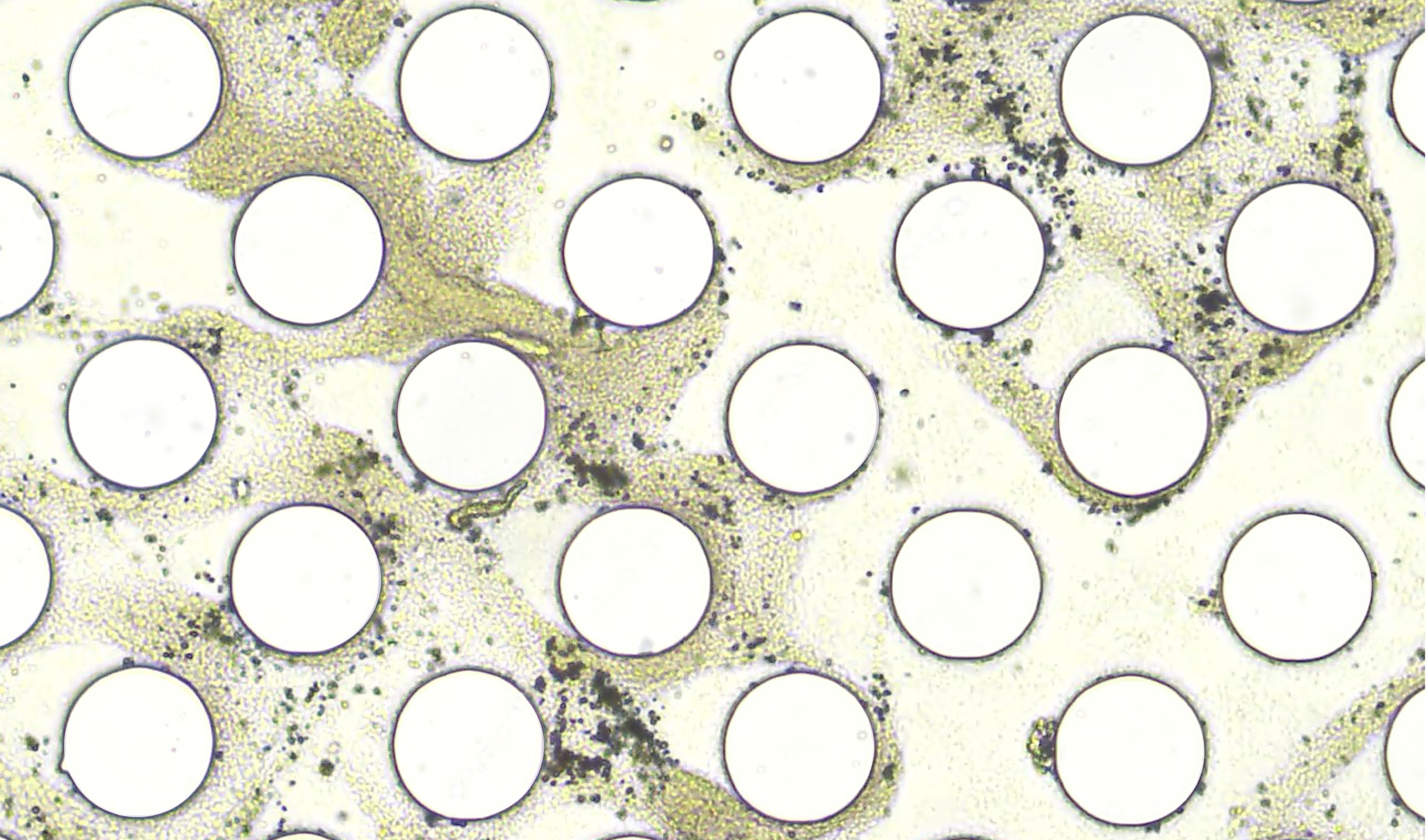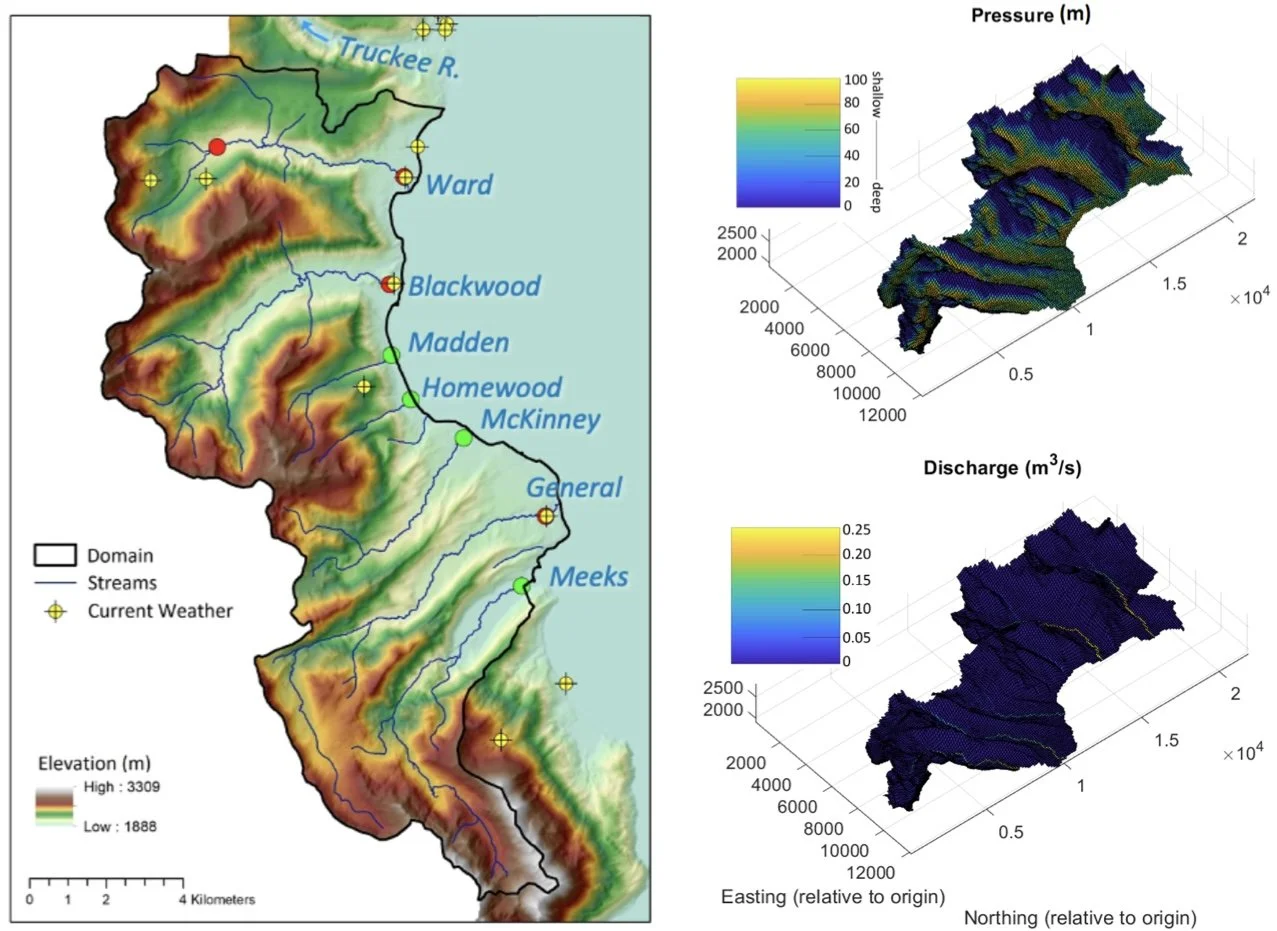Reactive Fluid Mixing
Chemical reactions driven by fluid mixing play a crucial role in many environmental processes, such as in coastal zones where seawater mixes with fresh water and triggers chemical transformations that impact water quality and ecosystem health. These reactions are also significant in subsurface environments, where contaminants mix with groundwater, affecting the fate and transport of pollutants.
In our lab, we investigate these complex mixing-driven reactions, focusing on fluid-fluid interactions and their biogeochemical consequences for the environment. Our goal is to improve the understanding and prediction of these reactions, contributing to better management of water resources and contamination remediation strategies.
Microbial Processes
Soil and subsurface bacterial communities, along with the extracellular materials they produce, can significantly influence the spread of contaminants (e.g., microplastics) and mobility of nutrients in the environment. These microbial processes play a crucial role in shaping the fate of pollutants and the availability of essential nutrients, impacting soil health and water quality. Leveraging these bacterial functions has the potential to enhance strategies for contaminant mitigation, nutrient cycling, and sustainable land and water management practices.
At the SBLab, we explore how physical and chemical processes shape bacterial behavior and function, with the aim of advancing sustainable solutions for environmental challenges.
Environmental Remediation
Environmental remediation is essential for protecting water resources from the harmful impacts of pollutants, which can persist in the environment and pose serious risks to human health and ecosystems. For instance, contaminants such as heavy metals, organic compounds, and agricultural runoff can infiltrate groundwater supplies, leading to long-term environmental and health consequences. These pollutants are often difficult to remove using traditional methods, making innovative solutions essential.
Our lab investigates innovative solutions and strategies for environmental cleanup and remediation. Currently, our research focuses on assessing the effectiveness of metal-organic frameworks and biological reactors in removing a variety of contaminants, with the goal of advancing remediation technologies that can address the complexities of groundwater pollution and protect water quality.
Extreme Weather Events Impact on Water Resources
Extreme weather events, such as floods, droughts, and storms, are becoming more frequent and intense due to climate change, posing significant challenges to water resource management. These events can drastically alter water availability, quality, and distribution, impacting ecosystems, agriculture, and human populations.
At the SBLab, we study the effects of extreme weather on water systems to better understand how these events influence hydrological processes and water infrastructure. Our goal is to develop adaptive strategies that enhance the resilience of water resources in the face of increasingly unpredictable climate conditions.
Computational Drug Delivery
Tumors reshape healthy liver tissue, creating tortuous porous environment that impacts drug delivery and their efficiency in reaching their target. Understanding these dynamics is critical for designing treatments that maximize effectiveness while minimizing side effects.
In our lab, we investigate how tumor shape, size, and tissue transport properties influence fluid flow and drug distributions. Our goal is to develop mathematical and computational models that can correctly predict drug delivery, improving and optimizing existing treatments, and supporting new therapies that personalize treatment.




